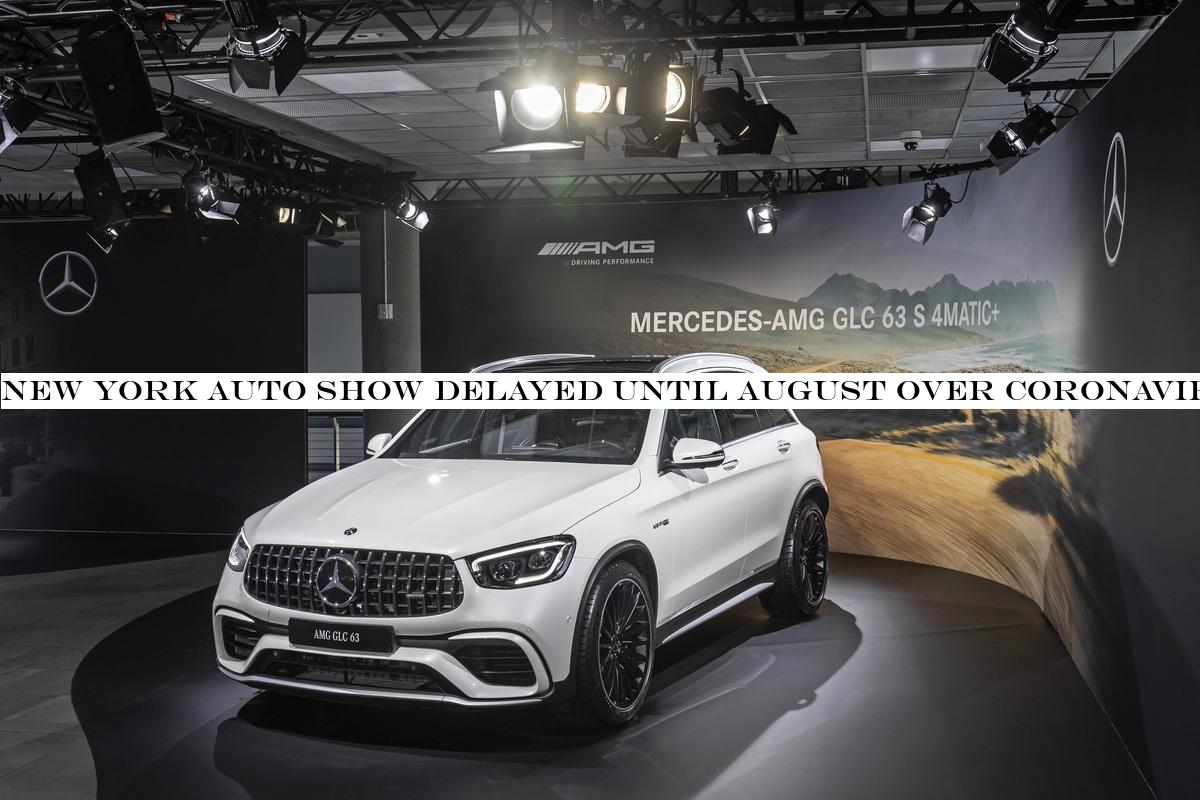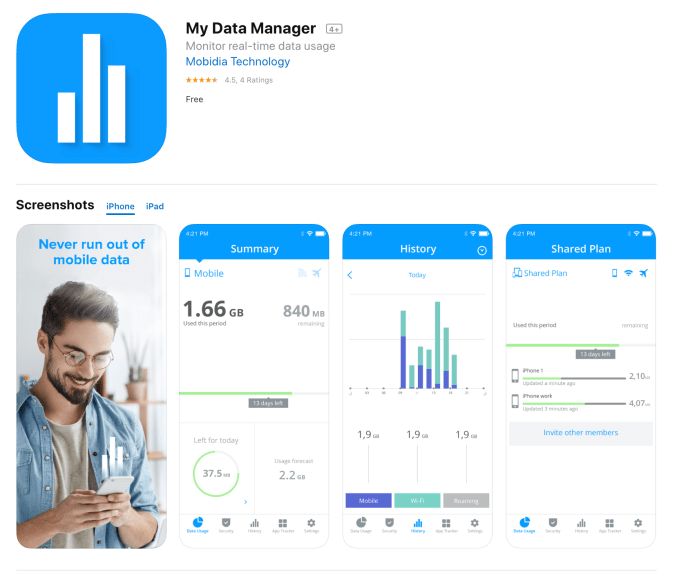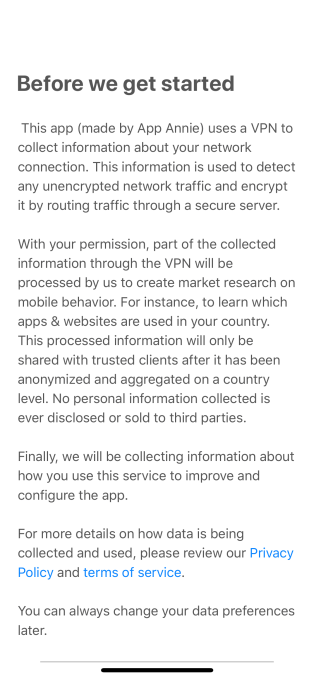Music
Trailers
DailyVideos
India
Pakistan
Afghanistan
Bangladesh
Srilanka
Nepal
Thailand
StockMarket
Business
Technology
Startup
Trending Videos
Coupons
Football
Search
Download App in Playstore
Download App
Best Collections
Technology

Sometimes, it takes only the promise of a massive government bailout to put that rose-colored filter on the effluent sandwich of todayeconomic realities.
After yesterdayterrifying sell-off, American equities recovered today, with the major domestic indices rising to close the day. While the daygains do not erase yesterdaylosses, they are a welcome return to form for equity markets long-accustomed to rising.
The final results in less turbulent times would be more shocking, but today the Dow Jones Industrial Average rose 1,167.1 points, or 4.89%, the S-P 500 rose 135.7 points, or 4.94%, while the Nasdaq Composite picked up 393.6 points, or 4.95%.
SaaS and cloud stocks, however, lagged their broader sector, only managing a 3.1% gain, according to the Bessemer-Nasdaq cloud index. This means that after SaaS and cloud stocks lost more yesterday (in percentage terms), they also recovered less than their peers. After a long period of leading, modern software companies are being repriced in the public markets, possibly leaving the company category with less of a premium over other tech companies.
The rally was broad, with bitcoin ending a period of decline, and oil sharply ascending.
Still, the public markets are down from their heights. The Dow is off 15%, and touched a new 52-week low today before recovering. The S-P is also off a smidgen over 15%, while the Nasdaq is down a hair more at 15.2%, compared to its recently set 52-week highs.
A few more days like today are needed, then, to fully repair the damage. And therestill the overhang of bad news, including: a quarantine zone set up in New Rochelle, N.Y.; the terrible shape of oil and gas companies& debt loads; and the lack of any clarity around an actual bailout from the government.
Hopefully tomorrow morning stocks are quiet, and then the TechCrunch Public Markets Crew (Shiebs and Alex) can stop writing these posts. Until then, however, expect more.
As a final note, Apple and Microsoft are still trillion-dollar companies. So even in the throes of this correction, tech is hardly in the dumps. And the Nasdaq is up 12.6% over the last year.
- Details
- Category: Technology Today
Read more: Turbulent trading leads to market gains as stocks recover, SaaS lags
Write comment (91 Comments)Startups have welcomed proposals from the European Commission aimed at cutting red tape and shrinking cross-border barriers for small businesses as part of a new EU industrial strategy plan with a twin focus on digital and green transitions unveiled today.
Among the package of measures being proposed by the European Unionexecutive body are for Member States to sign up to a &Startup Nations Standard& — which would aim to promote best practices to support startups and scale-ups, such as one-stop shops, favourable employee stock-options arrangements and visa processing to reduce cross-border friction for entrepreneurs starting and growing businesses in the bloc.
In recent years, European startups have organized to campaign for reforms to rules around stock options &with 30 CEOs from homegrown startups, including TransferWise, GetYourGuide, Revolut, Delivery Hero, TypeForm and Supercell (to name a few) signing an open letter to policymakers two years ago calling for legislators to fix what they dubbed &the patchy, inconsistent and often punitive rules that govern employee ownership.&
The effort appears to have made a dent in the EU policymaking universe. Both regulatory and practical barriers are now in the Commissionsights, with it proposing a joint task force to work on sanding down business bumps.
It also today reiterated a perennial warning against Member States &goldplating& pan-EU rules by adding their own conditions on top.
&The Single Market is our proudest achievement — yet 70% of businesses report that they do not find it is sufficiently integrated,& said EVP Margrethe Vestager, laying out an industrial strategy package with a big focus on smaller companies, including those with big ambitions to scale. &Across Europe barriers are still preventing startups from growing into European businesses and our report is identifying those barriers and we also then address them in the Single Market enforcement action plan.&
In a letter responding to the Commissionplan for an EU Startup Nations Standard, 14 European startup founders (listed below) and a number of European startup associations welcomed the proposal — urging EU Member States to get behind it.
&By making it easier to start a business, expand across borders and attract top talent, this new Standard will help to level the playing field with powerful global tech hubs in the US and China,& the tech CEOs and startup advocacy organizations wrote. &We applaud the EUambition of seeking a pan-European solution to address the needs of startups. We are also encouraged that the Commission has specifically called out the treatment of stock options as one of the key issues.
&As highlighted by more than 500 leading European entrepreneurs who joined the Not Optional campaign, the inability of startups to use stock options effectively to attract and retain talent is a major bottleneck to the growth of startups in Europe.&
&The Commissionproposals will be a major step towards unleashing the full entrepreneurial firepower of Europe & but only if they are adopted and implemented by all Member States,& they added. &Thatwhy we are today calling on all Member States to sign up to the EU Startup Nations Standard, including a commitment to increase the attractiveness of employee ownership schemes.&
Herethe list of startup CEOs signing the letter:
- Christian Reber, CEO - Founder, Pitch
- Felix Van de Maele, CEO - Founder, Collibra
- Jean-Charles Samuelian, CEO - Founder, Alan
- Johannes Reck, CEO - Co-Founder of GetYourGuide
- Johannes Schildt, CEO - Founder, KRY / LIVI
- John Collison, Co-Founder and President, Stripe
- Juan de Antonio, CEO - Co-Founder, Cabify
- Markus Villig, CEO - Founder, Bolt
- Miki Kuusi, CEO - Co-Founder, Wolt
- Nicolas Brusson, CEO - Co-Founder, BlaBlaCar
- Peter Mühlmann, CEO - Founder, Trustpilot
- Sebastian Siemiatkowski, CEO - Founder, Klarna
- Taavet Hinrikus, Founder - Chairman, TransferWise
- Tamaz Georgadze, CEO - Founder, Raisin
Also welcoming the stock option proposals, Martin Mignot, a partner at Index Ventures — another backer of the Not Optional campaign — said: &The biggest challenge facing startups today is recruiting and retaining top talent. Thatwhy we are pleased that the EU Startup Nations Standard addresses stock options, making it easier for startups to allow employees to share in their success.&
&We are pleased to see the European Commission recognise the contribution that startups make to Europe and its citizens, and pursue a pan-European policy initiative to support this growing sector,& he added in a statement. &For too long, the focus in Europe has been on taming US tech giants. Todayannouncement confirms Europeambition to create its own champions.&
EU startup advocacy member association, Allied for Startups, is another signatory to the letter. And in an additional response, it broadly welcomed the CommissionSME strategy — while pressing for a strong focus on startups as independent actors in the implementation of the strategy, rather than as a sub-category of SMEs.
&The talent-focus of the proposed Startup Nation Standard has significant potential for startup ecosystems, since access to talent is still a bottleneck for startups in Europe,& said Benedikt Blomeyer, the lobby groupdirector of EU policy, in a statement.
&Through the SME strategy, we are pleased to see concrete measures such as better startup visas and improved employee stock options on the table. Allied for Startups has repeatedly called for both measures over the past years.&
&Unlike SMEs, startups can only succeed at scale,& he added. &They are global from day one and aim to grow big and fast. Specific measures that work for SMES, for instance a regulatory exemption, might not work for startups. On the contrary, it could incentivise a startup to stay small. To account for these differences, the European Commission should consider a startup strategy that focuses on scalability, complementing the SME strategy.&
Allied for Startups also welcomed the Commissiongeneral goal of reducing the administrative and regulatory burden for startups within the Single Market — saying the consideration of regulatory sandboxes as part of the support toolkit is &potentially valuable for startups, who build innovative products and services.&
The Commission is also looking to support SMEs to go public in Europe — announcing an SME Initial Public Offerings (IPOs) Fund under the InvestEU SME window, which will aim to make IPOs more accessible to local small businesses.
Another push aims to reduce late payments for SMEs, with the Commission noting today that one in four regional small businesses go bankrupt as a result of not being paid on time.
It also said it wants to stimulate investment in women-led companies and funds to &empower female entrepreneurship.& (Notably all the signatories on the aforementioned letter are male.)
Industrial to digital transformation
More broadly, the Commissionnew industrial strategy intends to underpin core EU policy priorities for the next five years — which include a focus on driving the digitization of legacy industries and simultaneous retooling to transition to a carbon neutral economy under the pan-EU Green Deal.
&Europe has the strongest industry in the world. Our companies — big and small — provide us with jobs, prosperity and strategic autonomy. Managing the green and digital transitions and avoiding external dependencies in a new geopolitical context requires radical change — and it needs to start now,& said Thierry Breton, commissioner for internal market, in a statement today.
During a press briefing, Vestager emphasized the Commissionview that new and more inclusive working methods are needed to deliver on the planned transformation.
&The twin digital and green transitions are posing both opportunities and challenges for the industry in general and for small and medium sized businesses in particular. Business models are changing. All across Europe companies are confronted with consumers& decreasing trust and increasing demand for transparency,& she said. &The world around us is also changing… Today global competition, trade disputes, the return of protectionism — I think that creates a shared feeling of uncertainty.
&This is challenging Europeindustry as it sets out to meet the twin transitions. Fortunately, the European industry is coming to this reality from a strong position. Our new strategy is building on Europestrength and on our values.&
On the proposals to shift to &inclusive& working methods, Vestager said the aim is &to work much closer with small and large companies, Member States, researchers, academia, social partners and other EU institutions.&
To that end, the Commission is proposing a new industrial forum to enable closer working with such stakeholders that it aims to have set up by September.
It also wants to work on identifying a number of industrial ecosystems — which Vestager said &may require a bespoke approach,& in terms of policy support.
At the press briefing, Breton suggested there could be between 15 and 20 such industrial ecosystems.
&We don&t want to leave anybody out,& he said. &This is an industrial strategy but we all know that underpinning this there are large corporations but many, many, many small ones too and we have to bring these on board. If we don&t have the big and the small we won&t have a dynamic, innovative, living sector.
&A lot of companies do this among themselves already, locally in fact, but we do hope it is going to be done in an even more horizontal manner across the EU and within the internal market,& he added.
Skills is another focus for the SME strategy — with the Commission saying it will expand Digital Innovation Hubs to every region in Europe to help small businesses plug in cutting edge tech, with expanded options for volunteering and training on digital technologies.
Helping SMEs find the skills they need to shift to sustainable ways of working is another stated aim.
The Commission has published a Q-A on the industrial strategy here.
Last month the executive body also set out proposals aimed at encouraging industrial data sharing and reuse, along with proposals for regulating high-risk uses of artificial intelligence.
A further major piece of EU digital policy due later this year is the forthcoming Digital Services Act — which is slated to address platform liabilities and responsibilities, including toward smaller businesses that rely on them as a marketplace.
- Details
- Category: Technology Today
Read more: European startups applaud Commission plan to rethink stock options
Write comment (95 Comments)I see far more research articles than I could possibly write up. This column collects the most interesting of those papers and advances, along with notes on why they may prove important in the world of tech and startups.
This week: crowdsourcing in space, vision on a chip, robots underground and under the skin and other developments.
The eye is the brain
Computer vision is a challenging problem, but the perennial insult added to this difficulty is the fact that humans process visual information as well as we do. Part of that is because in computers, the &eye& — a photosensitive sensor — merely collects information and relays it to a &brain& or processing unit. In the human visual system, the eye itself does rudimentary processing before images are even sent to the brain, and when they do arrive, the task of breaking them down is split apart and parallelized in an amazingly effective manner.

The chip, divided into several sub-areas, which specialize in detecting different shapes
Researchers at the Vienna University of Technology (TU Wien) integrate neural network logic directly into the sensor, grouping pixels and subpixels into tiny pattern recognition engines by individually tuning their sensitivity and carefully analyzing their output. In one demonstration described in Nature, the sensor was set up so that images of simplified letters falling on it would be recognized in nanoseconds because of their distinctive voltage response. Thatway, way faster than sending it off to a distant chip for analysis.
- Details
- Category: Technology Today
Read more: R D Roundup: Smart chips, dream logic and crowdsourcing space
Write comment (93 Comments)
Dell 2015 decision to buy EMC for $67 billion remains the largest pure tech deal in history, but a transaction of such magnitude created a mountain of debt for the Texas-based company and its primary backer, Silver Lake.
Dell would eventually take on close to $50 billion in debt. Years later, where are they in terms of paying that back, and has the deal paid for itself?
When EMC put itself up for sale, it was under pressure from activist investors Elliott Management to break up the company. In particular, Elliott reportedly wanted the company to sell one of its most valuable parts, VMware, which it believed would help boost EMCshare price. (Elliott is currently turning the screws on Twitter and SoftBank.)
Whatever the reason, once the company went up for sale, Dell and private equity firm Silver Lake came ‘a callin with an offer EMC CEO Joe Tucci couldn&t refuse. The arrangement represented great returns for his shareholders, and Tucci got to exit on his terms, telling Elliott to take a hike (even if it was Elliott that got the ball rolling in the first place).
Dell eventually took itself public again in late 2018, probably to help raise some of the money it needed to pay off its debts. We are more than three years past the point where the Dell-EMC deal closed, so we decided to take a look back and see if Dell was wise to take on such debt or not.
What it got with EMC
- Details
- Category: Technology Today
Read more: Dell spent $67B buying EMC — more than 3 years later, was it worth the debt
Write comment (93 Comments)
Organizers of the 2020 New York International Auto Show have postponed the event until August due to concerns about the COVID-19 outbreak.
The New York Auto Show, which is organized by the Greater New York Automobile Dealers Association, was scheduled to begin April 10 at the Jacob K. Javits Convention Center in New York City.
The event will now be held August 28 to September 6, according to a statement from Chris Sams, the showspokesman. Press days are August 26 and 27.
&We are taking this extraordinary step to help protect our attendees, exhibitors and all participants from the coronavirus,& Mark Schienberg, president of the Greater New York Automobile Dealers Association, said in an emailed statement.&For 120 years, ‘the show must go on& has been heavily embedded in our DNA, and while the decision to move the show dates didn&t come easy, our top priority remains with the health and well-being of all those involved in this historic event. We have already been in communication with many of our exhibitors and partners and are confident that the new dates for the 2020 Show will make for another successful event,& Schienberg added.
A number of automakers had planned to debut their vehicles at the show, including electric vehicle startup Lucid Motors, as well as large OEMs like Ford and GM.
The New York Auto Show joins a growing list of events that have been cancelled or delayed due to concerns about COVID-19, a disease caused by a new virus that is a member of the coronavirus family. COVID-19, which is a close cousin to the SARS and MERS viruses that have caused outbreaks in the past, has caused governments and companies to cancel tech, business and automotive events around the world.
Just yesterday, Cadillac announced plans to cancel the unveiling of its new electric vehicle at a special event next month in Los Angeles. The Geneva International Motor Show was cancelled, as well as MWC in Barcelona and the SXSW festival in Austin, Texas.
- Details
- Category: Technology Today
Read more: New York Auto Show delayed until August over coronavirus concerns
Write comment (96 Comments)The underpinnings of how app store analytics platforms operate were exposed this week by BuzzFeed, which uncovered the network of mobile apps used by popular analytics firm Sensor Tower to amass app data. The company had operated at least 20 apps, including VPNs and ad blockers, whose main purpose was to collect app usage data from end users in order to make estimations about app trends and revenues. Unfortunately, these sorts of data collection apps are not new — nor unique to Sensor Tower operation.
Sensor Tower was found to operate apps such as Luna VPN, for example, as well as Free and Unlimited VPN, Mobile Data and Adblock Focus, among others. After BuzzFeed reached out, Apple removed Adblock Focus and Google removed Mobile Data. Others are still being investigated, the report said.

Apps& collection of usage data has been an ongoing issue across the app stores.
Facebook and Google have both operated such apps, not always transparently, and Sensor Towerkey rival App Annie continues to do the same today.
For Facebook, its 2013 acquisition of VPN app maker Onavo for years served as a competitive advantage. The traffic through the app gave Facebook insight into which other social applications were growing in popularity — so Facebook could either clone their features or acquire them outright. When Apple finally booted Onavo from the App Store half a decade later, Facebook simply brought back the same code in a new wrapper — then called the Facebook Research app. This time, it was a bit more transparent about its data collection, as the Research app was actually paying for the data.
But Apple kicked out that app, too. So Facebook last year launched Study and Viewpoints to further its market research and data collection efforts. These apps are still live today.
Google was also caught doing something similar by way of its Screenwise Meter app, which invited users 18 and up (or 13 if part of a family group) to download the app and participate in the panel. The appusers allowed Google to collect their app and web usage in exchange for gift cards. But like Facebook, Googleapp used AppleEnterprise Certificate program to work — a violation of Apple policy that saw the app removed, again following media coverage. Screenwise Meter returned to the App Store last year and continues to track app usage, among other things, with panelists& consent.
App Annie
App Annie, a firm that directly competes with Sensor Tower, has acquired mobile data companies and now operates its own set of apps to track app usage under those brands.
In 2014, App Annie bought Distimo, and as of 2016 has run Phone Guardian, a &secure Wi-Fi and VPN& app, under the Distimo brand.

The app discloses its relationship with App Annie in its App Store description, but remains vague about its true purpose:
&Trusted by more than 1 million users, App Annie is the leading global provider of mobile performance estimates. In short, we help app developers build better apps. We build our mobile performance estimates by learning how people use their devices. We do this with the help of this app.&
In 2015, App Annie acquired Mobidia. Since 2017, it has operated real-time data usage monitor My Data Manager under that brand, as well. The App Store description only offers the same vague disclosure, which means users aren&t likely aware of what they&re agreeing to.

Disclosure?
The problem with apps like App Annieand Sensor Toweris that they&re marketed as offering a particular function, when their real purpose for existing is entirely another.
The app companies& defense is that they do disclose and require consent during onboarding. For example, Sensor Tower apps explicitly tell users what is collected and what is not:

App Annieapp offers a similar disclosure, and takes the extra step of identifying the parent company by name:

App Annie also says its apps can continue to be used even if data sharing is turned off.
Despite these opt-ins, end users may still not understand that their VPN app is actually tied to a much larger data collection operation, however anonymized that data may be. After all, App Annie and Sensor Tower aren&t household names (unless you&re an app publisher or marketer.)
Apple and Googleresponsibility
Apple and Google, letbe fair, are also culpable here.
Of course, Google is more pro-data collection because of the nature of its own business as an advertising-powered company. (It even tracks users in the real world via the Google Maps app.)
Apple, meanwhile, markets itself as a privacy-focused company, so is deserving of increased scrutiny.
It seems unfathomable that, following the Onavo scandal, Apple wouldn&t have taken a closer look into the VPN app category to ensure its apps were compliant with its rules and transparent about the nature of their businesses. In particular, it seems Apple would have paid close attention to apps operated by companies in the app store intelligence business, like App Annie and its subsidiaries.
Apple is surely aware of how these companies acquire data — itcommon industry knowledge. Plus, App Annieacquisitions were publicly disclosed.
But Apple is conflicted. It wants to protect app usage and user data (and be known for protecting such data) by not providing any broader app store metrics of its own. However, it also knows that app publishers need such data to operate competitively on the App Store. So instead of being proactive about sweeping the App Store for data collection utilities, it remains reactive by pulling select apps when the media puts them on blast, as BuzzFeedreport has since done. That allows Apple to maintain a veil of innocence.
But pulling user data directly covertly is only one way to operate. As Facebook and Google have since realized, iteasier to run these sorts of operations on the App Store if the apps just say, basically, &this is a data collection app,& and/or offer payment for participation — as do many marketing research panels. This is a more transparent relationship from a consumerperspective too, as they know they&re agreeing to sell their data.
Meanwhile, Sensor Tower and App Annie competitor Apptopia says it tested then scrapped its own ad blocker app around six years ago, but claims it never collected data with it. It now favors getting its data directly from its app developer customers.
&We can confidently state that 100% of the proprietary data we collect is from shared App Analytics Accounts where app developers proactively and explicitly share their data with us, and give us the right to use it for modeling,& stated Apptopia co-founder and COO, Jonathan Kay. &We do not collect any data from mobile panels, third-party apps or even at the user/device level.&
This system (which is used by the others as well) isn&t necessarily a solution for end users concerned about data collection, as it further obscures the collection and sharing process. Generally, consumers don&t know which app developers are sharing this data, what data is being shared, or how itbeing utilized. App data of this nature isn&t on the user level (meaning itnot personal data), but itstill about reporting back to the developer things like installs, daily and monthly users, and revenue, among other things. (Fortunately, Apple allows users to disable the sharing of some diagnostic and usage data from within iOS Settings.)
Data collection done by app analytics firms is only one of many, many ways that apps leak data, however.
In fact, many apps collect personal data — including data thatfar more sensitive than anonymized app usage trends — by way of their included SDKs (software development kits). These tools allow apps to share data with numerous technology companies, including ad networks, data brokers and aggregators, both large and small. Itnot illegal, and mainstream users probably don&t know about this either.
Instead, user awareness seems to crop up through conspiracy theories, like &Facebook is listening through the microphone,& without realizing that Facebook collects so much data it doesn&t really need to do so. (Well, except when it does).
In the wake of BuzzFeedreporting, Sensor Tower says it&taking immediate steps to make Sensor Towerconnection to our apps perfectly clear, and adding even more visibility around the data their users share with us.&
Google isn&t providing an official comment. Apple didn&t respond to requests for comment.
Sensor Towerfull statement is below:
Our business model is predicated on high-level, macro app trends. As such, we do not collect or store any personally identifiable information (PII) about users on our servers or elsewhere. In fact, based on the way our apps are designed, such data is separated before we could possibly view or interact with it, and all we see are ad creatives being served to users. What we do store is extremely high level, aggregated advertising data that may demonstrate trends that we share with customers.
Our privacy policy follows best practices and makes our data use clear. We want to reiterate that our apps do not collect any PII, and therefore it cannot be shared with any other entity, Sensor Tower or otherwise. We&ve made this very clear in our privacy policy, which users actively opt into during the apps& onboarding processes after being shown an unambiguous disclaimer detailing what data is shared with us. As a routine matter, and as our business evolves, we&ll always take a privacy-centric approach to new features to help ensure that any PII remains uncollected and is fully safeguarded.
Based on the feedback we&ve received, we&re taking immediate steps to make Sensor Towerconnection to our apps perfectly clear, and adding even more visibility around the data their users share with us.
App Annie shared the below statement, referencing the root certificate installations mentioned in the BuzzFeed article. (On iOS devices, VPN certificates don&t get full root access, however):
App Annie does not use root certificates at any point in its data collection process.
App Annie discloses that when users opt into data collection (and data sharing is not mandatory to use our apps), data will be shared with App Annie for the purposes of creating market research. We only collect data after users expressly consent to this collection within our apps. We are very transparent, both on the app stores and in the apps themselves and clearly connect App Annie to our mobile apps.
- Details
- Category: Technology Today
Read more: Your VPN or ad-blocker app could be collecting your data
Write comment (92 Comments)Page 1250 of 1416

 17
17





